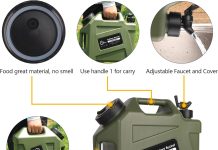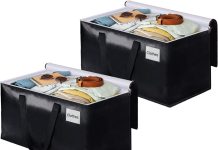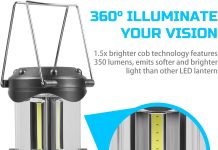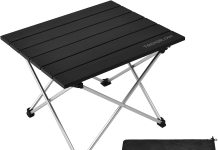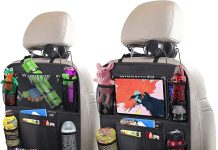Embarking on your first camping trip can be both exciting and overwhelming, as you navigate the unknown world of sleeping under the stars and embracing nature. But fear not, because we’ve got you covered with our First Time Camping Guide. In this article, we will provide you with essential tips and tricks to ensure your maiden camping adventure is easy and stress-free. From choosing the right campsite to packing the necessary gear, we’ll equip you with all the knowledge you need to make your first camping trip a memorable one. So, get ready to embrace nature and create unforgettable memories as we guide you through this exciting journey.
Review contents
Choosing the Right Camping Gear
Camping gear is essential for a successful outdoor adventure. When it comes to choosing the right gear, it’s important to consider your specific needs and preferences.
Tents
A tent is often the first thing that comes to mind when thinking about camping gear. When choosing a tent, take into account the size and type of camping you’ll be doing. Will you be camping alone or with a group? Do you prefer a spacious tent or a more lightweight and compact option? Make sure to also consider the tent’s weather resistance and durability.
Sleeping Bags and Pads
A good night’s sleep is crucial for an enjoyable camping experience. Sleeping bags and sleeping pads are two items that can greatly contribute to your comfort in the great outdoors. Look for a sleeping bag that is suitable for the temperature range of your camping destination. Consider the insulation type, size, and weight. Additionally, choose a sleeping pad that provides sufficient cushioning and insulation against the cold ground.
Cooking Equipment
Food is an important part of any camping trip. Before heading out, make sure you have the necessary cooking equipment. Portable stoves, pots, pans, and utensils are essential for preparing meals. Don’t forget to pack a cooler to keep perishable items fresh. Consider your cooking preferences and the number of people you’ll be camping with when selecting your cooking equipment.
Backpack and Essentials
A reliable backpack is crucial for carrying all your camping gear. Look for a backpack that is comfortable to wear and has enough storage capacity for your needs. Additionally, it’s important to pack essential items such as a flashlight, map, compass, multi-tool, and extra batteries. These items will come in handy in various situations and ensure you are prepared for any unexpected circumstances.
Clothing and Footwear
Choosing the right clothing and footwear for your camping trip is essential for staying comfortable and protected. Dress in layers to adapt to changing weather conditions. Pack moisture-wicking clothes to keep you dry and warm. Don’t forget to bring a waterproof jacket and pants in case of rain. Choose sturdy and comfortable footwear that is suitable for the terrain you’ll be exploring. Proper attire and footwear are essential for a pleasant camping experience.
Finding the Perfect Campsite
Finding the perfect campsite is crucial for a successful camping trip. Consider the following factors when searching for a suitable location:
Researching Campgrounds
Researching different campgrounds is a great starting point. Look for campgrounds that offer the amenities and activities you are interested in. Check reviews and ratings to get an idea of the campground’s reputation. This research will help you narrow down your options and find the perfect fit for your needs.
Considering Amenities
Different campgrounds offer various amenities, such as showers, toilets, picnic tables, and fire pits. Consider the amenities that are important to you and choose a campground that offers them. These amenities can greatly enhance your camping experience and provide convenience during your stay.
Checking Site Availability
Once you have chosen a campground, check the site availability. Some campgrounds require reservations, especially during peak seasons. Make sure to book your campsite in advance to secure your spot. Checking availability will ensure that you have a designated campsite waiting for you upon arrival.
Analyzing Location and Accessibility
Consider the location and accessibility of the campground. Think about the activities you plan to engage in and choose a campground that is conveniently located near them. Additionally, assess the accessibility of the campground. Ensure that there are suitable roads and parking areas for your vehicle. Choosing a well-located and easily accessible campsite will save you time and effort during your camping trip.
Packing Essentials for Your Camping Trip
Proper packing is essential for a successful and enjoyable camping trip. Make sure you have all the essentials to ensure a comfortable and safe experience. Consider the following items when packing for your camping trip:
Camping Checklist
Create a comprehensive camping checklist to ensure you don’t forget any essentials. This checklist should include items such as your tent, sleeping bag and pad, cooking equipment, clothing and footwear, backpack and essentials, and any other necessary gear. Having a checklist will help you stay organized and ensure you have everything you need before embarking on your camping adventure.
Food and Water
Pack enough food and water for the duration of your camping trip. Consider the duration of your stay and plan your meals accordingly. Opt for non-perishable food items that are easy to prepare and require minimal storage. Don’t forget to bring a sufficient supply of drinking water or a water filtration system to ensure you stay hydrated throughout your trip.
First Aid Kit
A well-equipped first aid kit is a camping essential. Include items such as bandages, antiseptic wipes, pain relievers, insect repellent, sunscreen, and any necessary prescription medications. Having a first aid kit on hand will help you deal with minor injuries and illnesses during your camping trip.
Safety Equipment
Ensure you have the necessary safety equipment to handle emergencies. Pack a basic fire extinguisher, a whistle, a flashlight, and a multi-tool. These items will be useful in various situations, from signaling for help to fixing gear issues. Safety should always be a priority when camping.
Personal Items and Hygiene Products
Don’t forget to bring personal items such as toiletries, towels, and a camping shower if needed. Maintaining personal hygiene is important even while camping. Pack items such as toilet paper, hand sanitizer, and wet wipes for added convenience.
Entertainment and Recreation
Bring items that will keep you entertained during downtime. Consider packing books, board games, playing cards, or a portable music player. Additionally, bring along outdoor recreational items such as bicycles, fishing gear, or hiking equipment. These items will enhance your camping experience and provide opportunities for fun and relaxation.
Campsite Cleanup Supplies
It’s important to leave your campsite clean and pristine. Pack garbage bags, biodegradable soap, and reusable cleaning wipes to ensure proper campsite cleanup. Cleanliness is not only important for the environment but also for the next campers who will be using the site.
Setting Up Your Campsite
Setting up your campsite properly is essential for a comfortable and enjoyable experience. Follow these steps to ensure a smooth setup:
Choosing the Right Spot
Choose a suitable spot for your campsite. Look for level ground to pitch your tent on to ensure a comfortable sleeping surface. Avoid areas with potential hazards such as loose rocks or branches that could fall. Consider the proximity to amenities and the view from your campsite when selecting the perfect spot.
Pitching and Securing the Tent
Follow the instructions provided with your tent to pitch it correctly. Ensure that the tent is securely fastened to the ground, using stakes or guy lines if necessary. This will prevent the tent from collapsing in windy conditions and keep you safe during your sleep.
Organizing the Campsite
Maintaining an organized campsite will make your daily routines easier. Set up a designated cooking area with your cooking equipment and food supplies. Create a designated area for relaxation with chairs and a table. Keep your personal items organized in your backpack or storage bins. Organization will minimize the chances of misplacing important items and help you make the most of your camping experience.
Setting Up Sleeping Area
Create a comfortable and cozy sleeping area. Lay down your sleeping pad or inflatable mattress and place your sleeping bag on top. Make sure the area is clean and free of debris. This will provide you with a comfortable sleep surface and ensure a good night’s rest.
Creating a Fire Ring and Gathering Firewood
If allowed at your campsite, create a fire ring for campfires. Clear an area from any flammable debris and surround it with rocks. This will contain the fire and prevent it from spreading. Gather firewood from the surrounding area, following any firewood regulations in place. A campfire creates a cozy ambiance and is perfect for gathering around in the evening.
Campfire Safety and Cooking Tips
Campfires are a camping tradition and provide a great opportunity for cooking and camaraderie. Follow these tips to ensure campfire safety and enjoy delicious meals in the great outdoors:
Preparing and Starting a Campfire
Before starting a campfire, check if campfires are allowed in your campground and if there are any specific regulations or restrictions in place. Clear the area around the fire ring from flammable materials and make sure to have a water source nearby for emergencies. Start the fire using dry kindling and small branches, gradually adding larger pieces of firewood. Always keep a close eye on the fire and never leave it unattended.
Safety Measures and Fire Regulations
Always prioritize safety when dealing with campfires. Never leave a fire unattended and ensure it is fully extinguished before leaving the campsite or going to sleep. Use the appropriate firewood for your campfire and follow any firewood regulations in place to prevent the spread of invasive species. Be mindful of wind conditions and avoid placing flammable objects near the fire. Finally, familiarize yourself with any fire regulations specific to your camping area or season.
Cooking Techniques and Recipes
Campfire cooking can be a fun and delicious part of your camping adventure. Use a portable stove for easy meal preparation or cook directly over the campfire. Stick to simple recipes that require minimal equipment and preparation. Consider cooking classics such as foil-wrapped meals, skewered kebabs, or s’mores. Don’t forget to pack all the necessary cooking utensils and equipment for your recipes.
Exploring Outdoor Activities
Camping is a great opportunity to explore the wonders of the great outdoors. Engaging in outdoor activities will allow you to fully enjoy your camping trip. Consider the following activities when planning your adventure:
Hiking and Nature Trails
Embark on hiking adventures and explore nature trails near your campsite. Research the trails in the area and choose ones that match your fitness level and interests. Take in the beautiful scenery, observe wildlife, and challenge yourself by exploring different terrains. Remember to pack essentials such as a backpack, proper footwear, and a trail map.
Fishing and Boating
If you enjoy fishing or boating, choose a campground that offers these activities. Bring your fishing gear and enjoy a day on the water, whether it’s fishing from the shore or taking a boat out. Familiarize yourself with any fishing regulations in the area and practice catch-and-release to preserve the ecosystem. Boating enthusiasts should follow safety regulations and carry the necessary equipment.
Wildlife Observation
Camping provides the opportunity to observe wildlife in its natural habitat. Keep your distance and remember to respect the animals and their environment. Bring binoculars or a camera with a telephoto lens to capture memorable moments while maintaining a safe distance. Remember that observing wildlife should be done with minimal disruption to their natural behavior.
Photography and Stargazing
Capture the beauty of nature through photography. Pack your camera and explore different settings and angles to capture stunning images. Experiment with long exposure shots at night to capture the beauty of the night sky. Learn about the constellations and stargaze on clear nights for a mesmerizing experience.
Biking and Mountain Climbing
If you’re an adventure seeker, biking or mountain climbing may be the perfect activities for you. Bring your bike and explore the trails around your campsite. Mountain climbing enthusiasts can plan their ascent and make the necessary preparations, including researching the terrain and ensuring the proper gear is packed.
Dealing with Common Camping Challenges
Camping may present several challenges that can be overcome with preparation and the right mindset. Be prepared to face the following common challenges:
Weather Conditions
Weather conditions can impact your camping experience. Be prepared for unexpected changes in weather by bringing appropriate clothing layers, waterproof gear, and extra tarps for shelter. Check the weather forecast before your trip and be ready to adapt to the conditions.
Bugs and Insects
Bugs and insects are a common occurrence when camping. To minimize their impact, pack insect repellent and mosquito nets for your tent. Wear long sleeves and pants to protect yourself from bug bites. Additionally, avoid leaving food and trash exposed to prevent attracting unwanted critters.
Packing and Organization
Packing and staying organized can be a challenge, especially on longer camping trips. Create a comprehensive checklist and pack in an organized manner. Use storage bins and bags to keep your gear sorted. A well-organized campsite will make it easier to find what you need and optimize your camping experience.
Quiet Hours and Noise Management
Respect your fellow campers by adhering to quiet hours and practicing noise management. Keep voices and music at a considerate volume. Avoid unnecessary noise during early mornings and late evenings. Show courtesy to others, as they are also seeking a peaceful camping experience.
Staying Safe and Being Prepared
Safety and preparedness should be top priorities when camping. Follow these tips to ensure a safe and enjoyable experience:
Emergency Preparedness
Prepare for potential emergencies by bringing a first aid kit, a basic fire extinguisher, and a whistle for signaling. Familiarize yourself with the emergency procedures of the campground and the surrounding area. Additionally, have a communication plan in place and inform someone of your itinerary and expected return date.
Campsite Security
Take precautions to secure your campsite. Keep valuables locked in your vehicle or hidden within your tent. Avoid displaying expensive equipment or personal belongings that may attract attention. Be aware of your surroundings and report any suspicious activity to campground staff or authorities if necessary.
Wildlife Encounters
Camping in natural areas may result in wildlife encounters. Maintain a safe distance and never feed or approach wild animals. Store food and trash properly to avoid attracting wildlife to your campsite. Familiarize yourself with any wildlife regulations or guidelines specific to your camping area.
Navigating and Orientation
Before heading out on trails or exploring the surrounding area, familiarize yourself with maps and navigation tools. Carry a compass and use landmark identification to ensure you don’t get lost. Be aware of your surroundings and pay attention to trail markers or signs. If unsure, ask campground staff or fellow campers for advice and directions.
Leave No Trace Principles
Adhere to Leave No Trace principles to minimize your impact on the environment. Pack out all trash and dispose of it properly. Respect wildlife and their habitats by observing from a safe distance. Minimize campfire impacts by using established fire rings and practicing proper fire safety. Leave the campsite as you found it, or even better, cleaner.
Tips for a Good Night’s Sleep
A good night’s sleep is essential for a pleasant camping experience. Follow these tips to ensure a restful night:
Choosing the Right Sleeping Bag and Pad
Choose a sleeping bag and pad that suit the temperature range of your camping destination. Ensure that they provide sufficient insulation and cushioning for a comfortable sleep. Test your gear before your trip to make any necessary adjustments or replacements.
Campsite Selection Considerations
When selecting your campsite, consider factors that can affect your sleep quality. Choose a spot away from high-traffic areas, such as roads or communal facilities, to minimize noise disturbances. Opt for a level and comfortable sleeping surface to ensure maximum comfort.
Noise Reduction Techniques
Bring earplugs or use white noise machines to mask any intrusive noises during the night. These can help drown out sounds that may disrupt your sleep, such as nearby campers or wildlife activity. Additionally, close tent vents or use a rainfly to muffle noise.
Comfortable Camping Sleepwear
Wear comfortable and appropriate sleepwear for camping. Dress in layers to adapt to changing temperatures during the night. Opt for moisture-wicking materials to help regulate your body temperature and keep you dry. Don’t forget to bring extra blankets or a warm sleeping bag liner for colder nights.
Breaking Down and Packing Up
Packing up and leaving your campsite should be done with care and consideration. Follow these steps to ensure a smooth departure:
Cleaning and Organizing the Campsite
Before leaving, clean and organize your campsite. Pick up any trash or debris and dispose of it properly. Ensure that the fire is fully extinguished and the fire ring is cleaned of any remaining ashes. Pack away all camping gear and double-check for anything left behind.
Packaging and Storing Camping Gear
Properly pack and store all camping gear to ensure its longevity. Clean and dry your tent before packing it away to prevent mold and mildew. Organize smaller items in storage bins or bags, making sure they are secure and easily accessible for your next camping trip.
Proper Waste Disposal
Follow campground rules and regulations for waste disposal. Pack out all trash and dispose of it in designated bins or facilities. Separate recyclable items from general waste to minimize the impact on the environment. Leave your campsite cleaner than you found it, ensuring a pristine area for the next campers to enjoy.
Leave No Trace Ethics
Adhere to Leave No Trace ethics when breaking down and packing up. Minimize your impact on the environment by leaving the campsite as you found it. Avoid damaging vegetation or disturbing wildlife habitats. Respect the natural beauty of the area and ensure its preservation for future generations.
Camping is an incredible way to reconnect with nature and enjoy the great outdoors. By choosing the right camping gear, finding the perfect campsite, packing essential items, setting up your campsite effectively, and being prepared for various challenges, you can ensure a memorable and enjoyable camping trip. With proper planning and a friendly attitude, your first camping experience will be a success. So grab your gear, gather your friends or family, and embark on an adventure in the beauty of nature. Happy camping!



